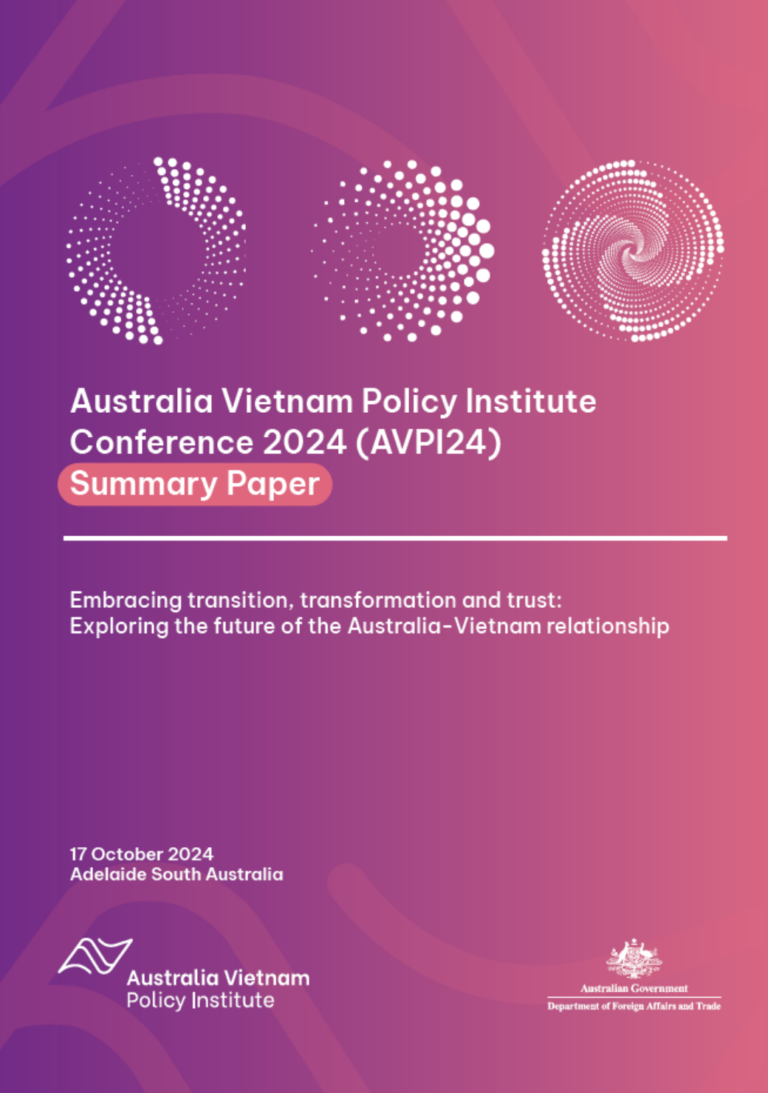Vietnam, one of the fastest growing and dynamic economies of the Asia Pacific, is undergoing a structural transformation.
On one hand, still 37% of the workforce are in agriculture (1) compared to the OECD average of 5%. On the other hand, Vietnam has a very vibrant start-up culture in the larger cities. As founder and CEO Shuyin Tang (2) says “Advancements in technology such as e-commerce, fintech, education, logistics and healthcare are driving the rising income of Vietnam’s population. Vietnam is already establishing itself as an emerging leader in the technology sector.”
Against this background, Artificial Intelligence (AI) technology can make a big difference for Vietnam in various areas.
- Use of AI and Industry 4.0 technologies for efficiency gains in public service and industrial operations.
The first immediate use of AI is to optimise business processes and automate operational activities. Many solutions exist from customer service analysis, to targeted marketing, chatbots, and process optimisation etc. - Use of AI for planning and decision making by public services as well as corporations.
The biggest initial use is to leverage AI data analytics to understand what is happening, as well as extrapolating to what might happen – which will help decision makers understand the expected implications for various decisions. The area of human/machine teaming for decision making is an emerging field, where AI and humans work together collaboratively to inform business decisions. - Start-ups developing AI solutions adapted to the Vietnamese ecosystem.
There are opportunities for start-ups and existing corporations to build customised solutions for Vietnam in the areas outlined above. - Education in AI. The structural transformation requires a higher educated workforce. Universities will play a key role in education the next generation of AI savvy users and developers.
Opportunities and Risks:
Vietnam has been increasing its Global Talent Competitiveness ranking over the last decade but not as fast as high-income countries (3). Thus, there is tremendous opportunity for AI technologies to make a difference in Vietnam’s structural transformation. This opportunity must be balanced against the risks of inflated expectations of what AI can do, fuelled by marketing hype, and the fear it will replace many jobs. The inflated expectations are by far the biggest issue and have led to AI winters in the past. The key is to view AI as an assistive tool, not a replacement of people. It is a tool making humans more effective. But it’s the structural transformation from a largely agrarian society to a more industrialised and services-based economy which will make it necessary for people to learn new skills to fill the newly emerging job opportunities. This is a generational shift we have seen in many economies around the world and will occur naturally. The use of AI in these structural transformations will however allow Vietnam to transform faster and more effectively.
Overall, we estimate that AI can and will play a significant and positive role in Vietnam’s structural transformation from a largely agrarian workforce to an industrialised services economy, and the opportunities far outweigh the risks.
1. Worldbank employment in agriculture: https://data.worldbank.org/indicator/SL.AGR.EMPL.ZS?locations=AU-VN-OE
2. “Tech companies really put Vietnam on the global map – Shuyin Tang”, 11 July 2022:
3. “Global Talent Competitiveness Index” https://www.insead.edu/faculty-research/research/gtci
4. “High tech farming in Ninh Thuan proves effective” https://en.vietnamplus.vn/high-tech-farming-in-ninh-thuan-proves-effective/238973.vnp












